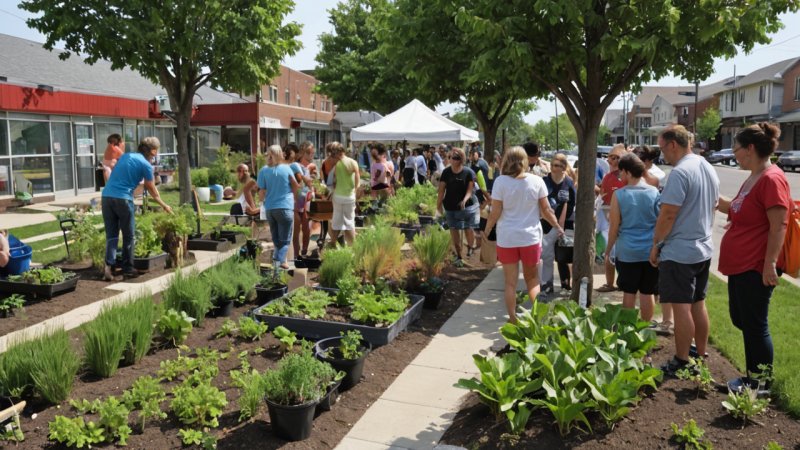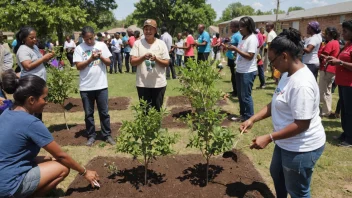In an era where urbanization is rapidly reshaping our environment, promoting sustainable living in urban settings is more crucial than ever. Cities are home to over half of the world's population, and their ecological footprints are significant. This article aims to explore actionable steps that individuals and communities can take to foster sustainability in their urban environments.
Sustainable living begins with awareness. Urban residents must recognize the impact of their daily choices on the environment. Simple actions, such as reducing waste, conserving water, and minimizing energy use, can lead to substantial changes. For instance, residents can opt for reusable bags, containers, and bottles to lessen plastic waste. By setting up community recycling programs, neighborhoods can significantly reduce landfill contributions and promote a culture of sustainability.
Transportation is another critical area where urban dwellers can make a difference. Cars are a major source of pollution in cities. Encouraging the use of public transport, biking, or walking can alleviate congestion and reduce carbon emissions. Local governments can support these shifts by investing in bike lanes, pedestrian-friendly walkways, and efficient public transit systems. Carpooling initiatives can also be promoted within communities, leading to fewer vehicles on the road and a lower carbon footprint.
In addition to reducing waste and promoting alternative transportation, urban gardening and green spaces play vital roles in sustainable living. Residents can transform vacant lots or rooftops into community gardens, fostering local food production and enhancing biodiversity. Urban gardens not only provide fresh produce but also create green habitats that support wildlife and improve air quality. Local governments can encourage these initiatives by providing resources and incentives for urban agriculture projects.
Energy consumption in cities is another area ripe for change. Individuals can adopt energy-efficient appliances, utilize smart home technologies, and consider renewable energy sources, such as solar panels. By sharing information about energy-saving practices and resources, communities can empower residents to make informed decisions that reduce their overall energy consumption.
Finally, education and advocacy are essential in promoting sustainable living. Communities can host workshops, seminars, and events focusing on environmental issues and sustainable practices. By educating residents, cities can cultivate a culture of eco-consciousness that extends beyond individual actions to collective movements. Community-led initiatives that advocate for policy changes related to environmental protections can also amplify the message of sustainability.
In conclusion, promoting sustainable living in urban environments is achievable through small, everyday actions. By fostering awareness, encouraging eco-friendly transportation, supporting urban gardening, reducing energy consumption, and prioritizing education, individuals and communities can significantly impact their urban landscapes. When residents come together to embrace these practices, they not only improve their immediate surroundings but also contribute to a healthier planet for future generations.
Urban Sustainability: Small Changes Matter
Discover how small changes in urban living can lead to significant impacts on sustainability and the environment.






